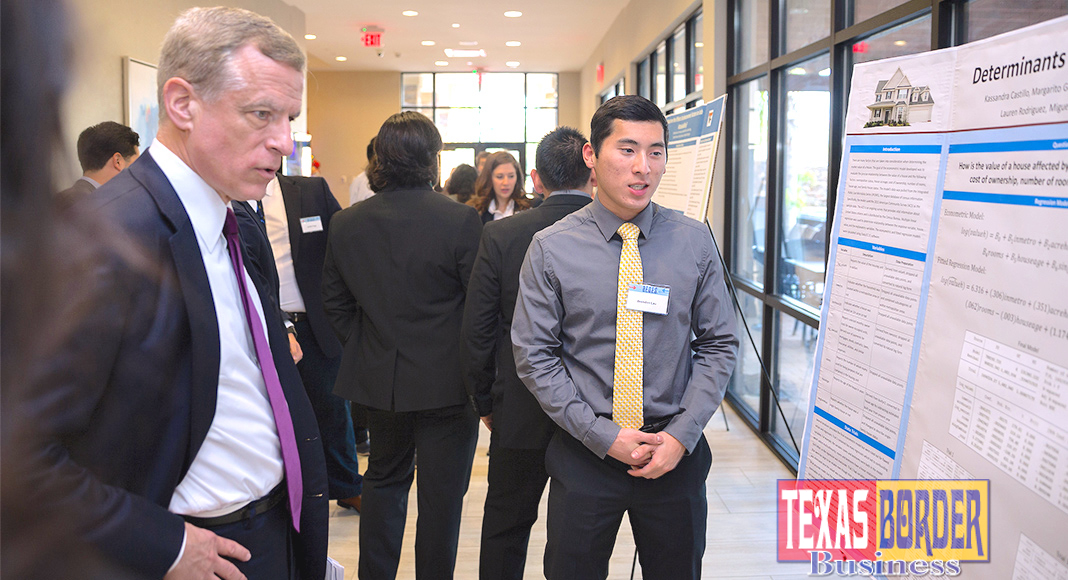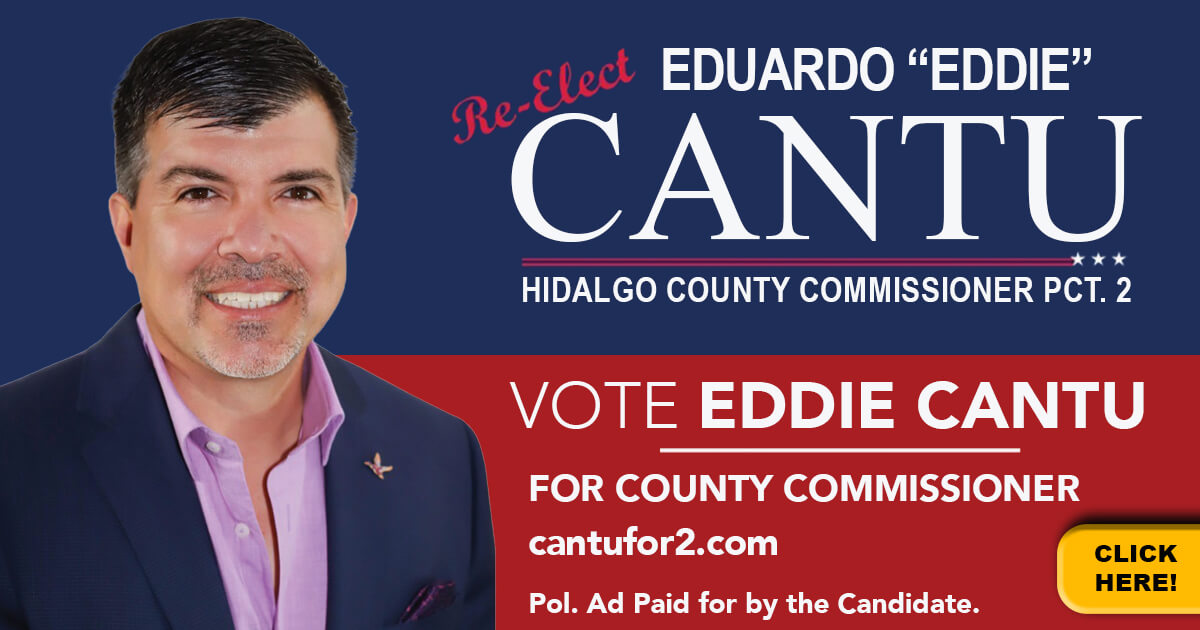
Texas Border Business
By Amanda A. Taylor
McALLEN, TEXAS – DEC. 1, 2017 – Current economic conditions and the implications of monetary policy were prime topics of the annual Border Economics, Development and Entrepreneurship Symposium (BEDES), held Dec. 1 at Embassy Suites Hotel in McAllen.
The University of Texas Rio Grande Valley’s Department of Economics and Finance in the Robert C. Vackar College of Business and Entrepreneurship, the Federal Reserve Bank of Dallas and the McAllen Chamber of Commerce co-sponsored the event.
Robert S. Kaplan, president and CEO of the Federal Reserve Bank of Dallas, was a key participant in the symposium, moderated by UTRGV professor of economics Dr. Marie T. Mora, associate vice provost for faculty diversity. Mora is recognized nationally for her extensive research on Hispanic socioeconomic outcomes and has spoken on the subject at numerous institutions, including the White House Council of Economic Advisers and the U.S. Department of Labor.
Kaplan addressed the topic of the trading relationship between the United States and Mexico.
“Our research shows, on average, about 70 percent of the imports from Mexico into the United States are intermediate goods,” he said. “This trading relationship with Mexico has likely caused U.S. companies to be more globally competitive, not only in Texas but in the entire U.S.
“Mexico is strategically important to our country,” he said.
Kaplan acknowledged the need to update and renegotiate the terms of the North American Free Trade Agreement, but said the trading relationship between the United States and Mexico is essential to the competiveness of trade in this hemisphere. Losing that relationship would spark the loss of a vast number of jobs, he said.
Regarding construction of the border wall and its effects on the Texas border economy, Kaplan urged caution.
“It’s a constructive thing for us to be leveling the playing field and renegotiating trade agreements,” he said, “but I wouldn’t want to see a situation develop where, in order to be elected as president in Mexico, you would need to be anti-America or anti-American. Politically, we try to stay apolitical, but we have benefitted enormously by having a good, solid relationship with Mexico and border countries. History has shown that this is not only economically valuable, but geopolitically valuable.”
UTRGV STUDENTS PRESENT RESEARCH PROJECTS
Before and after the symposium, UTRGV business students were able to present their research projects to area business leaders, Federal Reserve officials, chamber of commerce officials and UTRGV faculty.
Focusing on the effects of hours worked by lawyers in the U.S., students Iliana Villalobos, Luis Garcia and Santos Villarreal explained their research and data sets.
“We wanted to see which lawyers worked the most, the ones that are self-employed or the ones that work for an agency,” said Garcia, a junior majoring in finance. “This question arises from the need to have family time and a life outside of work. We wanted to make the analysis and show our results.”
Dr. Wanling Huang, assistant professor of Economics and Finance, oversaw student presentations at the symposium.
“They have spent more than a month preparing for today,” she said. “They first presented to the department, and out of 12 groups, these were the best projects.”
Huang said it was important for her students to become familiar with working with data sets to ensure finding decent jobs in the future.
“The conclusions here should be meaningful to real life data and society, especially since some of my students want to work in projects here in McAllen or on the border,” she said. “The results are significant to people living here and they will already have experience analyzing these types of situations.”













